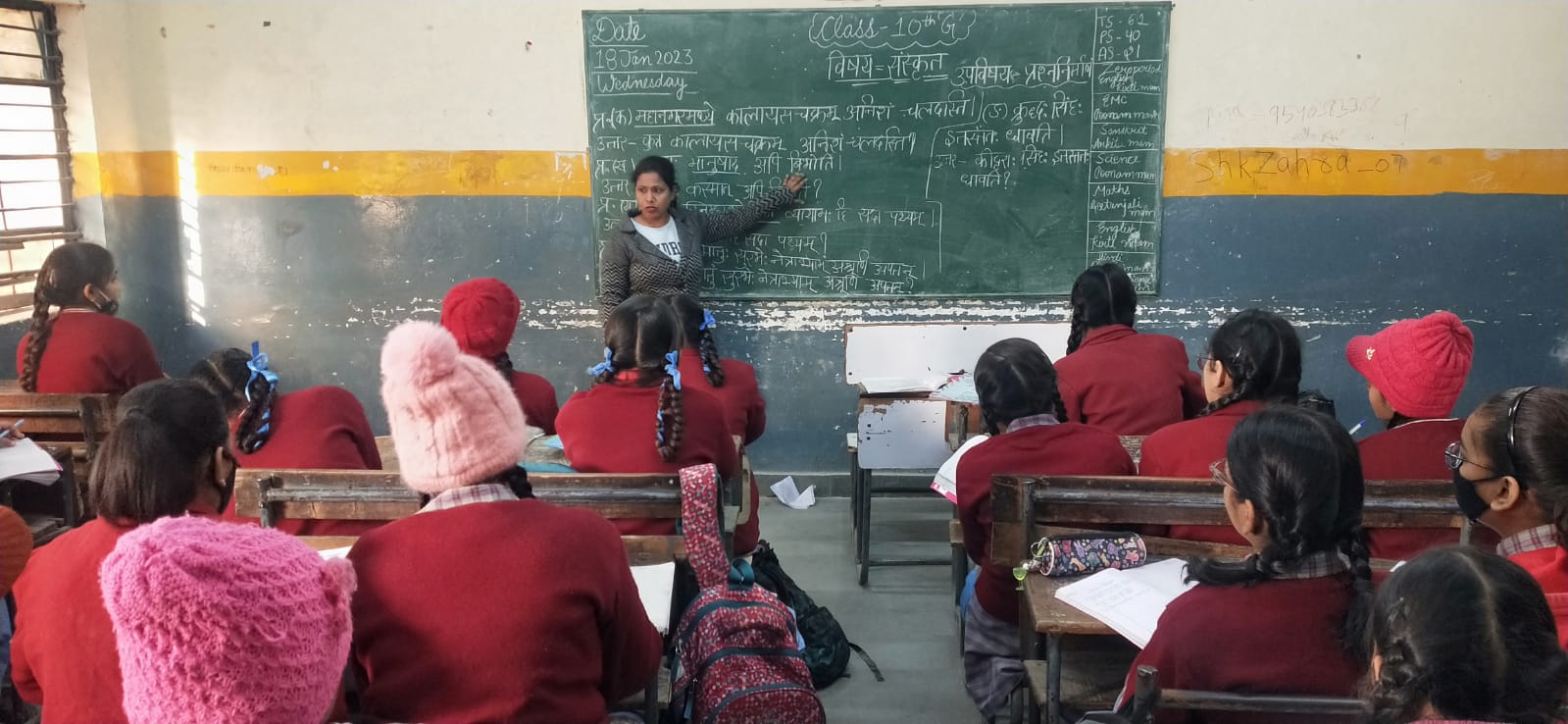I am Ankita, teacher of class eight at GGSSS Khajoori Khas school, Northeast district, Delhi. Sapna (name changed for confidentiality) was one of my students. She used to be irregular in attending the school and also performed poorly which was a matter of concern for me. I tried different methods to motivate her, asked her to be punctual, explained to her the importance of learning routinely and sent her to the principal’s office. But none of these approaches worked for her. I talked to Sapna’s previous class teacher, who shared, “Sapna had always been a jubilant little girl and one of the most regular and sincere students in her class.”
I still wanted to find a way to reach Sapna. I attended one of STiR’s teacher network meetings, delivered in collaboration with the Delhi government, with a focus on the connection between teachers and their students. The thought of connecting with my students at a personal level never struck me until the day I attended STiR’s meeting. In the session, we were asked to remember the names and qualities of our peers and discuss them in groups. This was followed by reflective questions like: How did we feel when we saw our fellow teachers remember our name and our qualities? How do we feel when someone whom we meet daily does not know anything about us?

Ms Ankita
Such monthly meetings have helped us form connections with our peers. They gave us a sense of belongingness and encouraged us to learn from each other. We felt empowered. The discussions around the importance of building connections, its impact and ways to connect with the students effectively, encouraged us to think of students beyond their academic performance. After this meeting, I decided to adopt a more empathetic approach towards Sapna.
I established trust and a deeper connection with Sapna by directly conversing with her. I learnt that during the last summer vacation, she lost her parents. When she joined the school, her grandparents were struggling financially and could not afford the cost of books and other necessities. She was about to leave school so that her brother could continue his education. I was moved by her story and after I took this up with the school Principal, Sapna was offered financial support to continue her education.
I feel that this experience has proved to be a turning point in my teaching practice. Sapna is not an isolated case. We never realised that simply calling students by their names, celebrating their birthdays or recognising their small achievements could make such a big difference in their learning process. For example, we have displayed a chart with the names of students along with their birthdays which makes them feel special. The more we talk to students, the more we realise that they are going through hardships at such a tender age. I am grateful to STiR which has helped change my perspective towards my students. The students are now comfortable enough to share their problems with me and I try my best to help them.
This incident also motivated other teachers to connect with their students at a personal level which resulted in an increase in attendance and learning outcomes. As a school, we made it our mission to identify students who are frequent absentees, observe their peers’ classes and hold discussions with teachers and students. Over the past four years, we have been able to approach several students and prevented school dropouts.
Sapna continued her education and is now in class 12. She shared, “Ankita Ma’am gave wings to my dreams. My teachers not only gave me financial support but also gave me emotional support. Ankita Ma’am started giving me extra classes in the library. She would always motivate me to study well. She also spoke to my grandparents and convinced them to allow me to continue my studies. I want to become a lawyer and now my family is also supporting me. Earlier they wanted to marry me off but now they can see the dream in my eye and my confidence of being someone someday.”
Ms Bhavna, who facilitated the teacher network meetings and supported me in this process, shared: “Teacher network meetings gave us the platform to discuss our classroom challenges and best practices with our peers. After these meetings, Ankita and I collectively focused on identifying the individual needs of the students and providing them with the required support. I was extremely happy to see Sapna continuing her studies and in the pursuit of her dream of becoming a lawyer.”


